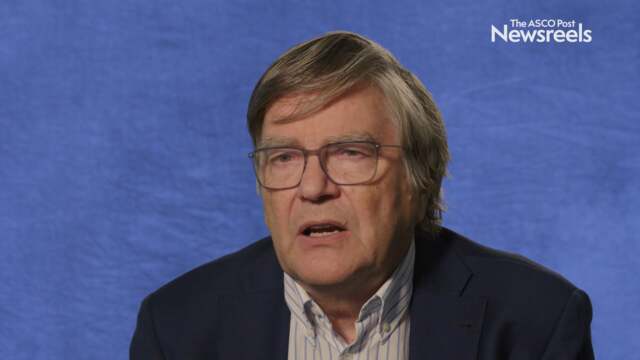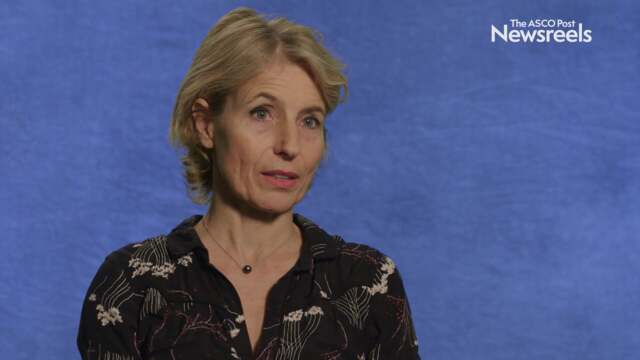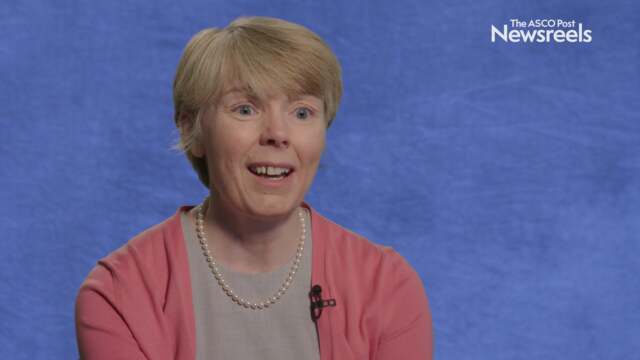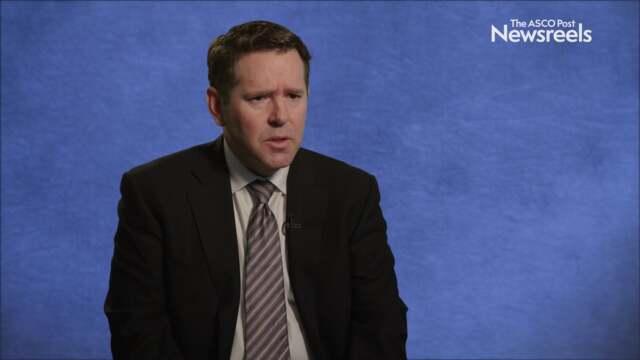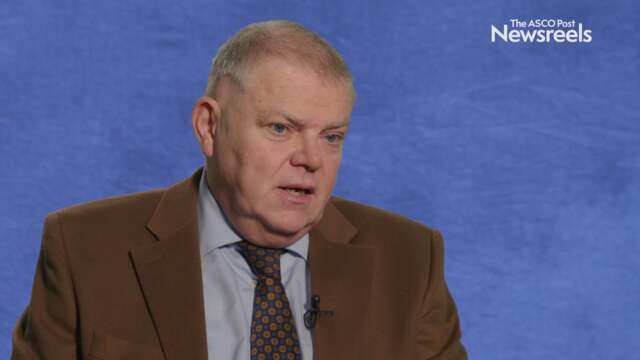Matthew J. Ellis, MB, BChir, PhD, on Breast Cancer: Neoadjuvant Endocrine Therapy
ESMO 2018 Congress
Matthew J. Ellis, MB, BChir, PhD, of the Baylor College of Medicine, discusses data on endocrine therapy alone or in combination with targeted treatments for postmenopausal women with strongly ER-positive/HER2-negative tumors.
Matti S. Aapro, MD, of the Genolier Cancer Centre, discusses the challenges of avoiding futile treatments and the need to work with patients, integrate palliative care, and monitor toxicities.
Caroline Robert, MD, PhD, of Gustave Roussy Cancer Centre, discusses managing toxicities of immunotherapy, including neurotoxicity, and treating beyond acute adverse events.
Eileen M. O’Reilly, MD, of Memorial Sloan Kettering Cancer Center, discusses the latest information on locoregional and systemic treatments of hepatocellular carcinoma as well as targeted therapy for biliary cancer.
Karl Lewis, MD, of the University of Colorado, discusses a phase II study of cemiplimab in patients with advanced basal cell carcinoma who experienced progression of disease on, or were intolerant of, prior hedgehog pathway inhibitor therapy.
For more information about this ongoing trial, visit clinicaltrials.gov
ClinicalTrials.gov ID: NCT03132636
Johan F. Vansteenkiste, MD, PhD, of Catholic University Leuven, summarizes a session he co-chaired that included discussion of translating advances in stage IV disease to nonmetastatic lung cancer, TKI approaches in early-stage disease, and integrating immunotherapy and TKIs in stage III disease management.
